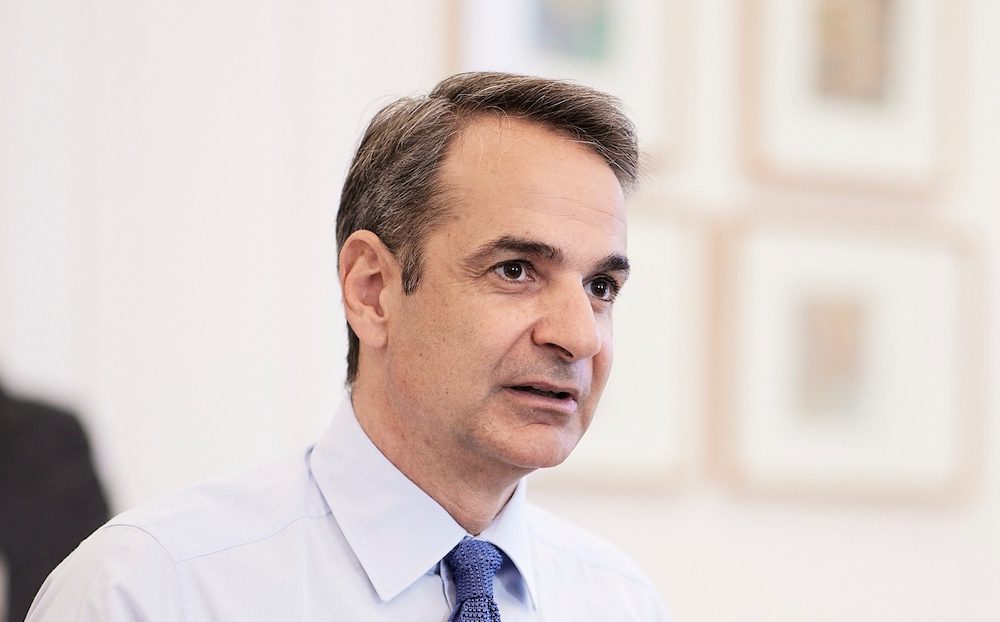
By a slim margin, Greece’s conservative government survived its no-confidence vote, Athens-Macedonian News Agency reports. The Friday, January 27th, vote came at the leftist opposition’s request after news surfaced that top officials had been wiretapped by state intelligence services.
The vote by roll call followed a three-day discussion on the scandal. With 156 votes against and 143 in favor, the Coalition of the Radical Left-Progressive Alliance (also known under ‘SYRIZA’) and its president Alexis Tsipras have to admit defeat.
Since the current government has a 156-seat absolute majority in the 300-seat house, the outcome had been expected; the motion required an absolute majority of all MPs, or 150+1 votes, to pass. Independent MP Andreas Patsis was the only abstention.
According to Greek City Times, Prime Minister Kyriakos Mitsotakis (from the liberal-conservative ‘New Democracy’ party) saw the vote as an opportunity to promote his government’s record ahead of this Spring’s elections.
With this scandal presumably dealt with, Mitsotakis can focus on other matters. These, as he noted in his speech made after the Friday vote, would entail strengthening Greece’s national defense industry, expanding its territorial waters and signing important defense agreements with France and the U.S.
He added he was confident his party, which is leading in opinion polls, would win its second term. “This government has proven it can come forward and deal with crises,” he said.
Just before the vote, Mitsotakis told lawmakers that the wiretapping his government had been accused of engaging in “was not politically acceptable,” and that he had voiced his “own, immediate disapproval of this.”
His political opponent, SYRIZA leader and former premier Alexis Tsipras, does not believe this. He has called Mitsotakis the “mastermind and leader” behind a “criminal network” that had wiretapped officials’ phones.
Allegations of widespread state-sanctioned surveillance first surfaced last August, when Nikos Androulakis, leader of the socialist opposition PASOK party claimed that his phone had been tapped by the EYP in 2021. “The minute I say that I’m going to stand for the socialist party, I suddenly realize that I’m a victim of phone hacking or wiretapping,” Androulakis then said.
Mitsotakis admitted the EYP had indeed monitored Androulakis but denied that Predator, spyware capable of making recordings, had been used. Greek authorities have also admitted keeping tabs on Thanasis Koukakis, a Greek financial journalist.
Greece’s communications watchdog ADAE later said that an audit of national telecom operators uncovered that several senior officials had been under surveillance— Greece’s former energy minister, army chief, and former national security advisor also being among those targeted.
Kostis Hatzidakis, the former energy minister (and now labor minister) who was allegedly wiretapped, then said he was “absolutely convinced that the prime minister [of whose party he is a member] was not aware of this foul-smelling case.”
According to Tsipras, the ADAE’s chairman Christos Rammos had told him that these officials had been under surveillance by the state’s own intelligence agency, EYP. Citing “mistaken actions found during lawful wiretapping procedures,” EYP chief Panagiotis Kontoleon resigned over the matter soon after.
EYP’s direct involvement had been “consciously lied” about for six months by Mitsotakis, Tsipras said just before going into Friday’s vote. Since Mitsotakis’ office had oversight over the EYP, he had “thrown the entire weight of his authority” behind preventing the truth from coming out, he noted.
Mitsotakis has maintained that these instances of monitoring had been sanctioned by a prosecutor at the state intelligence agency, which made them legal.
In turn, his government has accused Tsipras of seeking to use the whistle-blowing ADAE for his own political ends, possible proof of which being chairman Rammos, who was appointed by Tsipras’s leftist government just before the 2019 elections.
For almost a year now a special committee of inquiry, formed by the European Parliament, has been looking into the use of spyware (such as Pegasus) by European governments.
The committee has pledged to present its recommendations for a European Parliament plenary before June 10th this year, when the committee’s term concludes.
